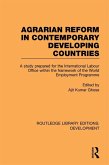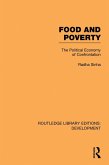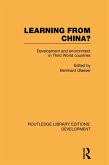Each region differs considerably in terms of socio-economic and administrative conditions, but when the reform efforts are placed in their respective historical contexts, several common themes emerge which are dealt with in detail. In all cases, it is clear that agrarian reform is essentially a political process, requiring major social movements and that piecemeal reforms will not solve the grave problems of growth, distribution and poverty in the Third World.
Dieser Download kann aus rechtlichen Gründen nur mit Rechnungsadresse in A, B, BG, CY, CZ, D, DK, EW, E, FIN, F, GR, HR, H, IRL, I, LT, L, LR, M, NL, PL, P, R, S, SLO, SK ausgeliefert werden.









